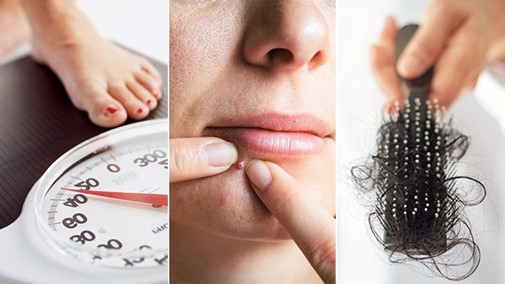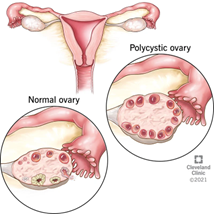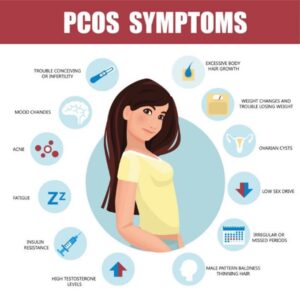
Polycystic Ovary Syndrome (PCOS) affects up to 10% of women of reproductive age and is a condition that can cause a range of physical and emotional symptoms. Despite the prevalence of PCOS, it often goes undiagnosed and untreated, leaving many women to suffer in silence. If you suspect that you may be experiencing symptoms of PCOS, it’s important to speak with your healthcare provider and seek the support you need.

Image source: Shutterstock
PCOS is a hormonal disorder that can cause a range of symptoms, including irregular periods, acne, weight gain, and excessive hair growth. It can also contribute to a range of serious health conditions, such as infertility, diabetes, and heart disease. Because PCOS is a complex condition that can present differently in different women, it can be challenging to diagnose.
The emotional impact of PCOS can be significant, with many women experiencing anxiety, depression, and low self-esteem as a result of their symptoms.

Image source: Shutterstock
The physical symptoms of PCOS can also be distressing, particularly for those who struggle with weight gain or excessive hair growth.
Managing PCOS often requires a multidisciplinary approach, including lifestyle modifications, medication, and support from mental health professionals. Working with a healthcare provider who is knowledgeable about PCOS can help you develop a comprehensive treatment plan that addresses your unique needs and symptoms.
If you suspect that you may be living with PCOS, don’t suffer in silence. Reach out to your healthcare provider and advocate for the support you need to manage your symptoms and protect your health. With the right support and treatment, women with PCOS can live healthy, happy, and fulfilling lives.